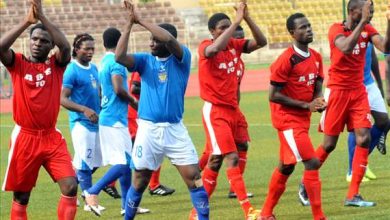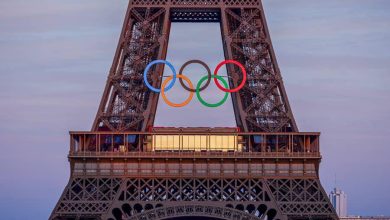River, Boca final ends in nightmare as Argentine FA postponed match
It was supposed to be a celebration of the passion, the colour and the sounds of Argentine football, an unprecedented spectacle the whole country could share in as River Plate and Boca Juniors dispute the Copa Libertadores final for the first time in history.
Those tuning in from around the world on Saturday certainly did get a taste of the local football scene. What they did not see was a single ball being kicked in anger.
Instead the Superclasico turned into a farce, a black mark against a nation with one of the richest sporting heritages on the planet – and one can only hope this serves as a wake-up call to tackle the problems of violence, corruption and sheer incompetence at an institutional level that combined on Saturday to bring shame to all of us that call Argentina their home.
Having played November 11’s first leg in the Bombonera in relative peace and tranquility, despite a 24-hour rain delay, all hell broke loose in the return. Just over an hour before kick-off Boca’s team coach made its way to River’s Monumental and was a sitting duck for idiotic home fans milling outside the stadium.
The vehicle was pelted with rocks, beer bottles and other projectiles, destroying the windows and causing eye injuries to two Boca players, who required hospital treatment. Police intervention only made matters worse: the firing of tear gas to disperse the mob inevitably led to those inside the coach feeling its effects.
Questions must also be asked about why Boca were there in the first place. Police organise scores of River games every year and know where potential flashpoints are likely to occur. Why, then, was the bus directed down Monroe street in Nunez, a place where River supporters gather at every home match, with a criminally insufficient escort to avoid trouble?
While those who attacked the coach brought shame on their club and should be identified and punished to the full letter of the law the security authorities, all 2,200 police officers who were hired solely to keep the peace in a game without away fans, proved themselves hideously incompetent in such a high-risk environment.
Indeed, an even greater tragedy may have occurred. “At the moment of the attacks I fainted and the vice-president of Boca took the wheel,” the coach driver later explained to ESPN .
If it were not for Horacio Paolini’s quick thinking the coach could easily have careered out of control and smashed into fans, causing a spine-chilling massacre. As the driver added: “For me it was a free-fire zone, we were coming to a football match, not to war.”
Even though Pablo Perez and Gonzalo Lamardo were hospitalised following those events, common sense did not prevail. For three and a half long hours representatives from River, Boca and CONMEBOL clashed heads over what to do next: the clubs wanted to abandon the final, with the governing body pushing for the game to be played. “They are forcing us to play,” fired Carlos Tevez, while fellow senior Boca representative Fernando Gago told of the nausea and headaches suffered by his team-mates from the gas that seeped in through their broken windows.
All the while thousands of River supporters sat in the stands in nervous ignorance at what was going on in the bowels of the Monumental. Fans continued to enter, and there were further clashes with police involving rubber bullets and more tear gas as chaos reigned in the streets of Buenos Aires.
The game was postponed, first for an hour, then two, and Boca’s coaching staff went as far as to announce their starting line-up and put training cones out on the pitch in preparation for kick-off before the futility of the exercise was finally recognised at 7.30pm local time and proceedings suspended until Sunday.





